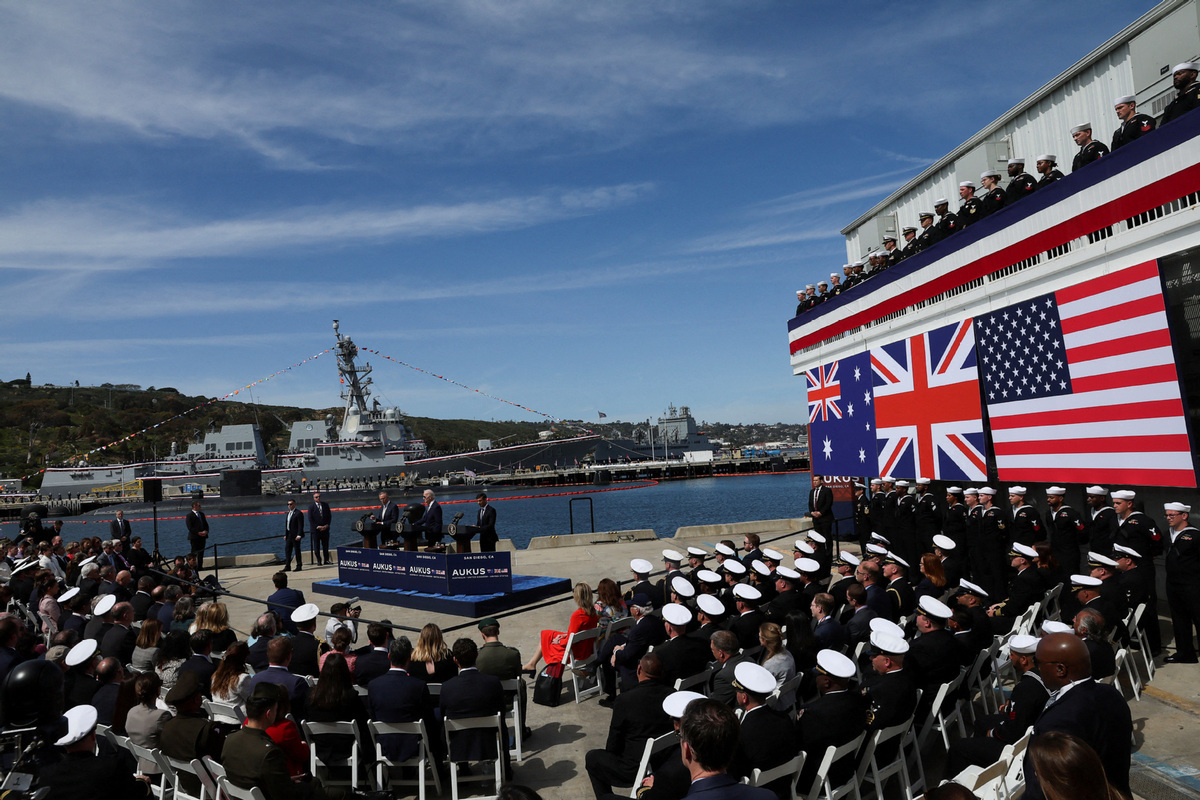More talk than substance in Japan joining AUKUS
China Daily | Updated: 2024-04-29 07:35

At a regular news conference of the Ministry of National Defense on Thursday, in response to a question from reporters about "Japan formally announcing its participation in the AUKUS alliance", spokesperson Wu Qian expressed China's "concern" about the move.
Countries like the United States, the United Kingdom, and Australia, disregarding the concerns of regional countries and the international community, continue to seek the expansion of AUKUS, which severely impacts the peace and stability of the Asia-Pacific region.
However, many analysts both in and outside the three member nations have raised questions about Japan joining AUKUS, which has a strong "Anglophone" character. Incorporating Japan, a non-English-speaking country, into the alliance will make the composition complex and inconsistent.
Furthermore, the true foundation of the AUKUS framework lies in the high degree of market, technology and equipment sharing among "Anglophone" countries in cutting-edge defense and high-tech fields. However, in recent years, US trade protectionism has prevailed, making cooperation among the three countries within the AUKUS framework increasingly difficult. Exactly because of this, AUKUS has only implemented one "project" in two and a half years, which is the sale of nuclear-powered submarines to Australia, and this project itself has been progressing slowly and experiencing constant delays.
If Japan were to be included, it would be even more difficult for AUKUS to achieve anything. In fact, some US politicians have begun to frequently criticize Japan for inadequate protection of US intellectual property rights.
According to Reuters, citing diplomatic sources, Australia has the most negative attitude toward including Japan, fearing that adding a fourth country to the alliance will make things more complicated and divert attention from the task of procuring nuclear-powered submarines.
It is worth mentioning that the Japanese government, which is plagued by low approval ratings and internal factional divisions within the Liberal Democratic Party, quietly lowered its tone after Prime Minister Fumio Kishida's visit to the US. On April 8, an anonymous senior Japanese government official stated that discussing Japan's accession to AUKUS before it reached any achievements only disrupted the cooperative framework on which it is based. On April 10, Kishida himself admitted at a news conference in the US that no decision has been made regarding Japan's cooperation with AUKUS. Clearly, all the signs indicate that Japan has not truly joined AUKUS, and the formation of the AUKUS framework, due to various constraints, has been all thunder and no rain up to now.
BEIJING NEWS
























